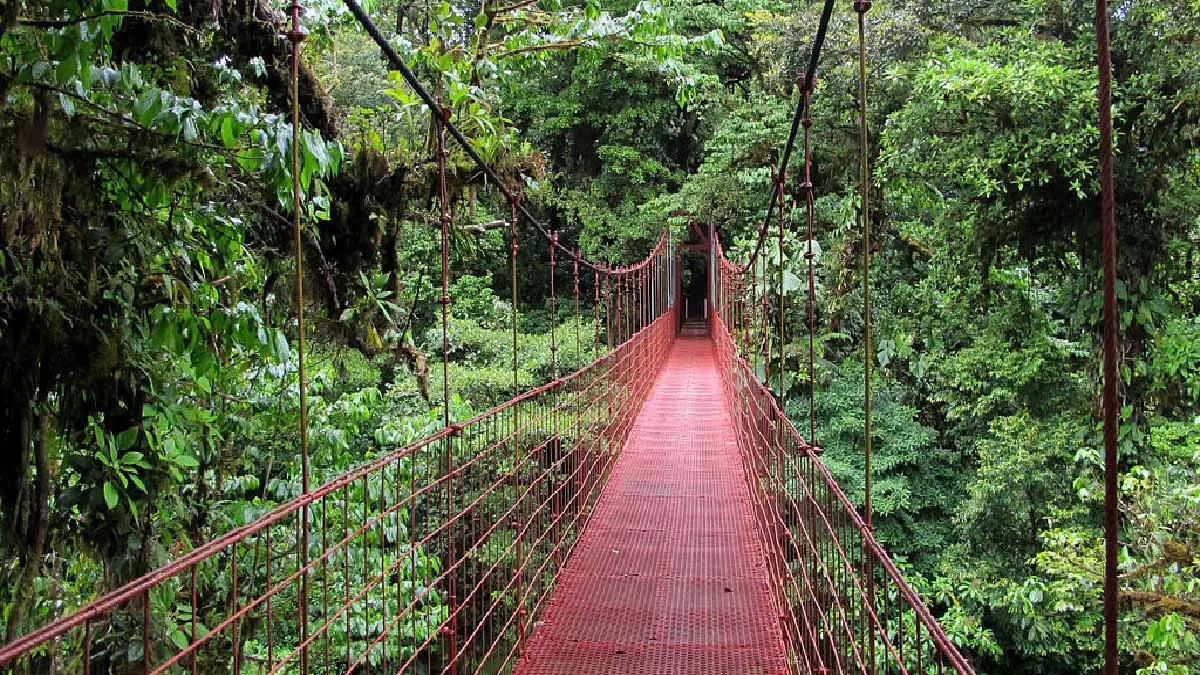As the year-end approaches, you will notice Costa Rica transforms into a mixture of Christmas traditions, blending Catholic heritage with local customs. Understanding the significance of Costa Rican Christmas offers a way of getting into the festive spirit. From the nightly posadas to tamales, let’s unwrap the gift of Costa Rican Christmas traditions.
Christmas Traditions in Costa Rica
In Costa Rica, most Christmas celebrations have a Catholic background, reflecting the country’s religion. The essence of Christmas remains the same: it is a Christian holiday celebrating the birth of Jesus Christ, and it is a time for reflection and celebration. This is also the case in most Latin American countries.
Costa Rica adds its flair to the festivities. Streets and homes are adorned with lights and decorations, featuring tropical elements like palm trees alongside nativity scenes. The air is filled with the aroma of Christmas dishes, such as tamales wrapped in banana leaves and rompope, an eggnog-like beverage.
There are differences in how Christmas is celebrated in urban and rural areas of Costa Rica. In cities like San José, you might find modern influences, with Christmas markets and light displays. Rural areas often maintain traditional celebrations, with a focus on community gatherings and homemade decorations.
Other Christmas activities include the Tope Nacional, a horse parade held in San José on December 26th, which showcases our equestrian culture. Another event is the Festival de la Luz (Festival of Light), typically held in early December, featuring floats and light displays.
Posadas: A Costa Rica Christmas Tradition
Among the Christmas traditions in Costa Rica are the posadas. This custom lasts nine nights, beginning on December 16 and ending on December 24 with the birth of Christ. Posadas are a representation of community spirit and religious devotion, bringing neighborhoods together in a nightly celebration.
The origin of posadas is a blend of indigenous and Catholic traditions. Part of its origin comes from an Augustinian friar named Diego Soris, who asked Pope Sixtus V for authorization to establish them. The friar’s aim was to replace a tradition the indigenous people had in honor of the god Huitzilopochtli. In this Aztec tradition, a slave was bought, celebrated for nine days, and then sacrificed.
The church replaced indigenous characters with Christian figures and modified the celebration, which was initially held in churches and later moved to neighborhoods and streets. To teach the doctrine, evangelizing friars dramatized each of the hardships Joseph and Mary had to endure in their search for refuge.
Today, posadas in Costa Rica are a community event. During the posadas, families visit a house each night to reenact what Mary and Joseph experienced while searching for a place for Jesus to be born. The meaning of “inn” was “lodging and food for travelers.” Originating in Spain, posadas have been practiced in Costa Rica for over 400 years.
The celebration begins with the recitation of the Rosary and the singing of litanies. Participants form two rows, ending with two children carrying images of the Virgin and St. Joseph. At the end of the litany, they divide into two groups: one enters the house while the other asks for lodging, imitating Joseph and Mary when they arrived in Bethlehem. The group inside welcomes the “pilgrims,” and the celebration continues with the singing of carols.
Each night, a different family organizes the festivities and agrees to host the “pilgrims” upon their arrival. According to tradition, the hosts of the posadas provide their guests with Christmas dishes and desserts. This might include Costa Rican holiday treats like tamales, arroz con leche (rice pudding), or tres leches cake.
Source link
Tico Times



